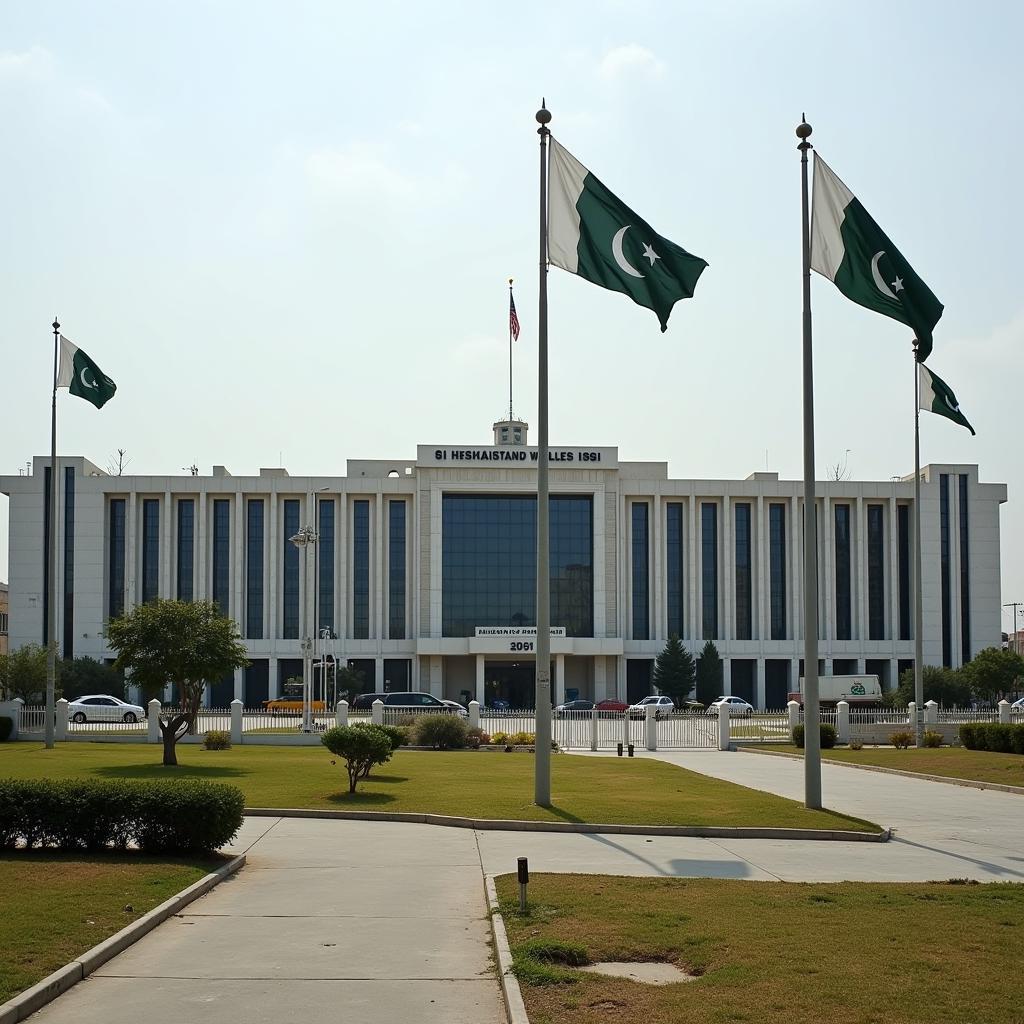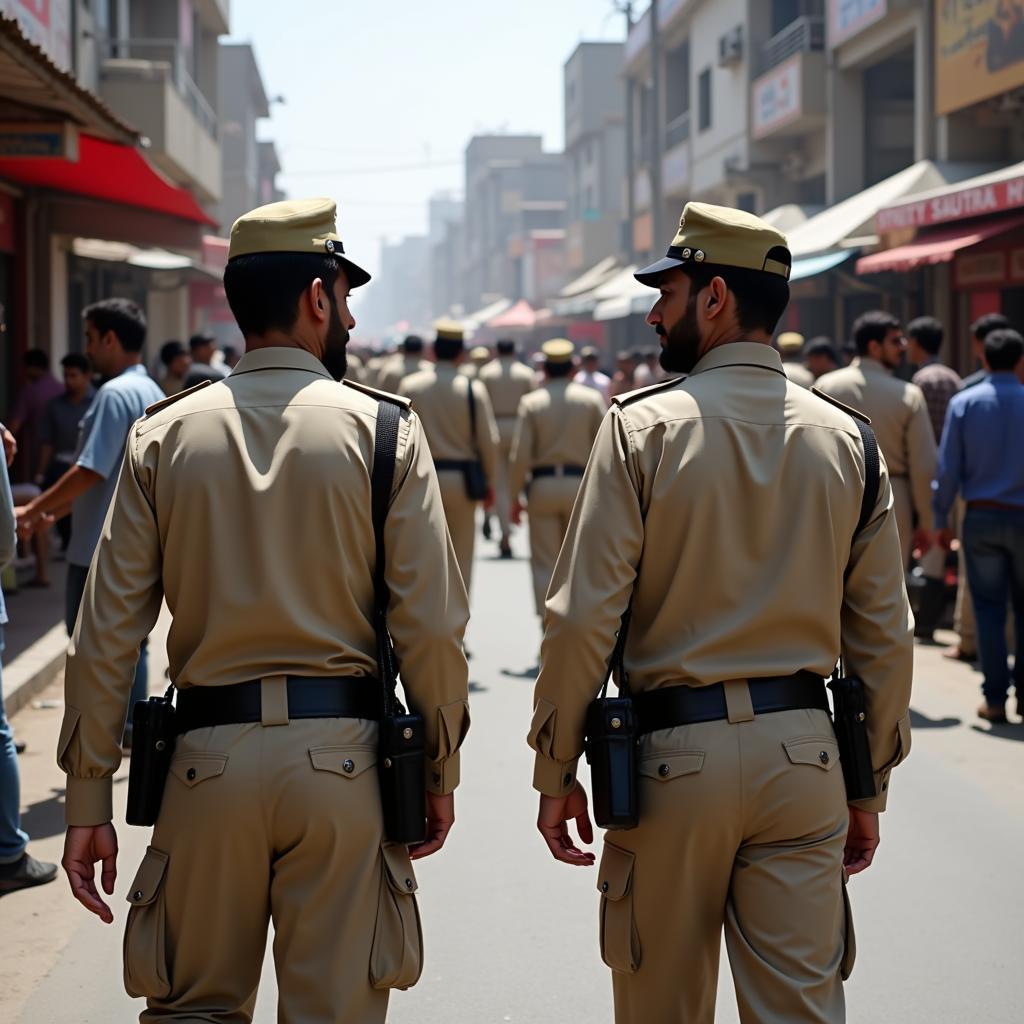Pakistan, a country strategically located in South Asia, faces a complex security environment characterized by both internal and external threats. To counter these challenges, the country relies on a multi-layered security apparatus comprising various agencies tasked with intelligence gathering, counterterrorism, law enforcement, and border security. This article delves into the structure, functions, and significance of Security Agencies In Pakistan.
Understanding the Security Landscape of Pakistan
Pakistan’s security concerns are multifaceted, ranging from terrorism and extremism to separatist movements and cross-border infiltration. The country’s proximity to Afghanistan, a historical hotbed of militancy, has significantly influenced its security situation. Moreover, internal challenges such as sectarian violence, ethnic tensions, and organized crime pose serious threats to national security.
Key Security Agencies in Pakistan
Pakistan has a robust security apparatus comprising several agencies, each with its specific mandate and area of operation. Some of the most prominent ones include:
1. Inter-Services Intelligence (ISI)
The ISI is Pakistan’s premier intelligence agency responsible for gathering intelligence, both domestic and foreign, and conducting covert operations. It plays a crucial role in counterterrorism efforts, monitoring internal security threats, and formulating foreign policy.
 ISI Headquarters in Islamabad
ISI Headquarters in Islamabad
2. Military Intelligence (MI)
As its name suggests, MI primarily focuses on military intelligence, supporting the Pakistan Army’s operations and strategic planning. It gathers information on potential threats to military installations, assesses enemy capabilities, and provides tactical intelligence on the battlefield.
3. Intelligence Bureau (IB)
The IB operates as the country’s internal intelligence agency, responsible for monitoring domestic threats, including political instability, sectarian violence, and subversive activities. It works closely with law enforcement agencies to maintain law and order within Pakistan.
4. Federal Investigation Agency (FIA)
The FIA is Pakistan’s primary investigative agency, tasked with tackling trans-national crime, terrorism financing, and cybercrime. It also plays a crucial role in immigration control, border security, and protecting the country’s economic interests.
5. National Accountability Bureau (NAB)
NAB is an autonomous body established to combat corruption and recover illegal assets. It investigates cases of financial misconduct, prosecutes corrupt individuals, and works to create awareness about the detrimental effects of corruption.
 Pakistani Police Officers on Patrol
Pakistani Police Officers on Patrol
The Role of Security Agencies in Pakistan
Security agencies in Pakistan play a critical role in safeguarding national security, maintaining law and order, and protecting the country’s interests both domestically and internationally. Their functions encompass a wide range of activities, including:
- Counterterrorism and Counterinsurgency: Combating terrorist organizations, disrupting militant networks, and countering extremist ideologies.
- Intelligence Gathering and Analysis: Collecting, assessing, and disseminating information on potential threats to national security.
- Law Enforcement and Crime Prevention: Investigating and prosecuting criminal activities, maintaining public order, and ensuring the rule of law.
- Border Security: Protecting Pakistan’s borders from illegal immigration, smuggling, and cross-border infiltration.
- Cybersecurity: Safeguarding critical infrastructure, protecting sensitive information, and countering cyber threats.
Challenges and Reforms
Security agencies in Pakistan face numerous challenges, including resource constraints, political interference, and allegations of human rights violations. To address these issues, the government has undertaken various reforms aimed at improving accountability, transparency, and professionalism within these agencies.
Conclusion
Security agencies play an indispensable role in safeguarding Pakistan’s sovereignty, territorial integrity, and national interests. While they have achieved significant successes in combating terrorism and maintaining law and order, continuous efforts are needed to address existing challenges and enhance their effectiveness. The evolving security landscape demands constant adaptation and reform to ensure these agencies can effectively counter emerging threats and maintain a secure and stable environment for all citizens.
Frequently Asked Questions
1. What is the main intelligence agency in Pakistan?
The Inter-Services Intelligence (ISI) is Pakistan’s premier intelligence agency.
2. What is the role of the FIA in Pakistan?
The Federal Investigation Agency (FIA) is responsible for investigating trans-national crime, terrorism financing, cybercrime, and ensuring border security.
3. What are the main security challenges faced by Pakistan?
Pakistan faces threats from terrorism, extremism, separatist movements, cross-border infiltration, sectarian violence, and organized crime.
4. What is being done to improve the performance of security agencies in Pakistan?
The government is implementing reforms focused on enhancing accountability, transparency, and professionalism within these agencies.
5. How can I learn more about specific security agencies in Pakistan?
You can find more information on our website, including articles on signal jammer price in pakistan, db center pakistan, and entomology jobs in pakistan.
If you have further questions or need assistance, please do not hesitate to contact us via:
Phone: +923337849799
Email: news.pakit@gmail.com
Address: Dera Ghazi Khan Rd, Rakhni, Barkhan, Balochistan, Pakistan
Our dedicated customer service team is available 24/7 to address your queries and provide support. We also encourage you to explore our other insightful articles on security and defense matters in Pakistan.